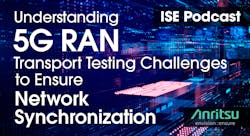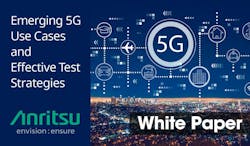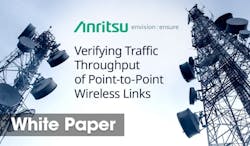Understanding 5G RAN Transport Testing Challenges to Ensure Network Synchronization
5G transport deployment uncovers new challenges within every element of the network – core, transport, and radio access network (RAN) – when transitioning from 4G to 5G. It will also change the fiber optic technology that serves as the backbone connecting it all. Service providers, data center management, and technicians responsible for the deployment, installation, and maintenance of these networks will need to consider synchronization and performance issues and solutions.
Testing capabilities to meet 5G standards and performance metrics need to be efficient, easy to use, and versatile enough to address maintenance of existing 4G infrastructure and achieve 5G network KPIs with optimal deployment, installation, and operation. The importance of fiber will continue to grow in mobile fronthaul, as expanding 5G use cases require greater network speed.
To achieve faster data speeds and higher bandwidth associated with 5G, millimeter-wave (mmWave) bands will be utilized. The consensus is to distribute timing via the RAN using Precise Timing Protocol (PTP) as defined by IEEE. PTP is utilized for synchronization of frequency and phase.
In this podcast, we will discuss the 5G RAN drivers that have an impact on transport test requirements such as network timing and synchronization, timing methods that are used for 5G RAN, and PTP synchronization failures and how to prevent them.
Maintaining synchronization quality will help ensure your network meets 5G latency requirement.
Topics of discussion:
- 5G time and synchronization challenges
- Network timing and synchronization impact on 5G NR
- New LTE-A and 5G features dependent on tight time and phase synchronization
- 5G’s wide use of TDD spectrum
- What new timing protocols are required
- New standards and solutions that are evolving for 5G transport
- How operators implement these requirements within new RAN architecture
With guest Daniel Gonzalez, Business Development Manager, Optical Transport Measurement Instruments, Anritsu
Daniel has over 19 years’ experience in digital and optical transport testing, development, training and execution spanning technologies including TDM, SONET, OTN, ATM, Carrier Ethernet and Physical Layer Signal Integrity.
Anritsu Company is the United States subsidiary of Anritsu Corporation, a global provider of innovative communications test and measurement solutions for 120 years. Anritsu engages customers as true partners to help develop wireless, optical, microwave/RF, and digital instruments, as well as operation support systems for R&D, manufacturing, installation, and maintenance. Anritsu also provides precision microwave/RF components, optical devices, and high-speed electrical devices. The company develops advanced solutions for 5G, M2M, IoT, and other emerging and legacy wireline and wireless communication markets. Visit www.anritsu.com.
More from Anritsu:
White Paper: Emerging 5G Use Cases and Effective Test Strategies
This white paper looks at foundational areas of 5G (eMBB, mMTC and URLLC), key capabilities, and emerging use cases from a tech and testing perspective. Learn three important factors to consider for a successful 5G test strategy.
White Paper: Verifying Traffic Throughput of Point-to-Point Wireless Links
This white paper describes turn-up and troubleshoot testing of point-to-point microwave links. Test procedures are described step by step.



